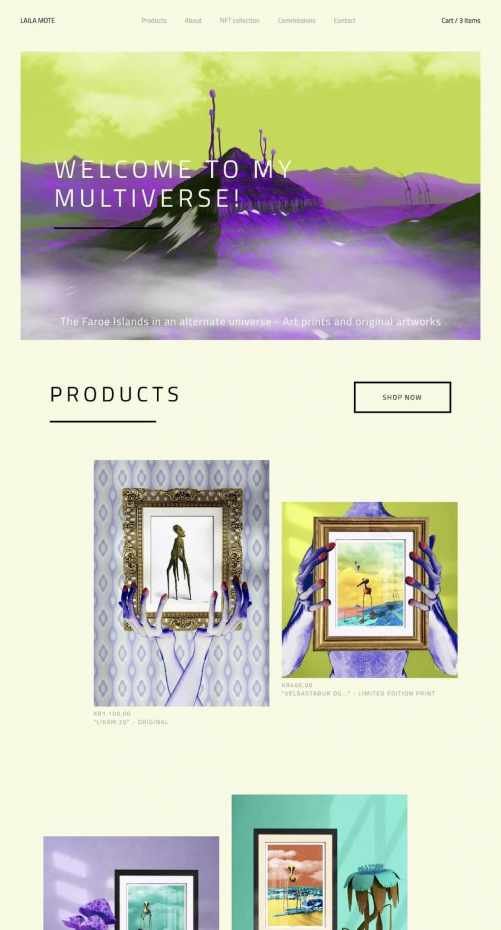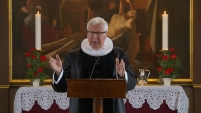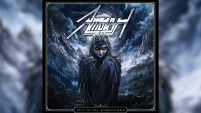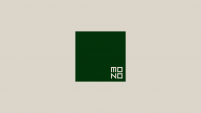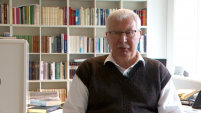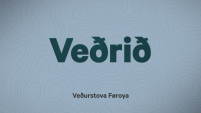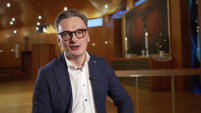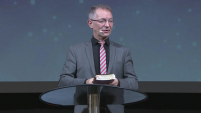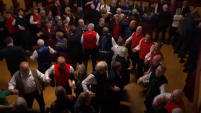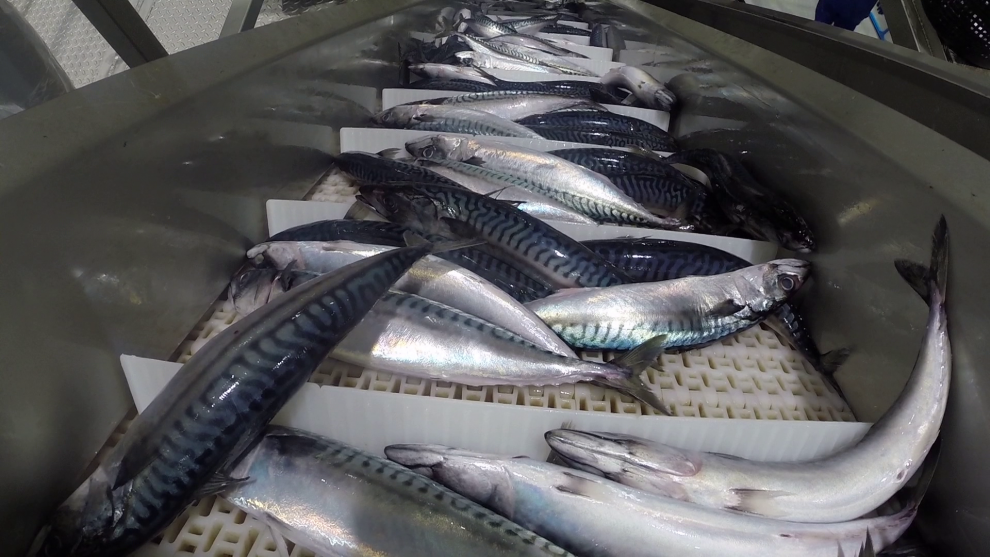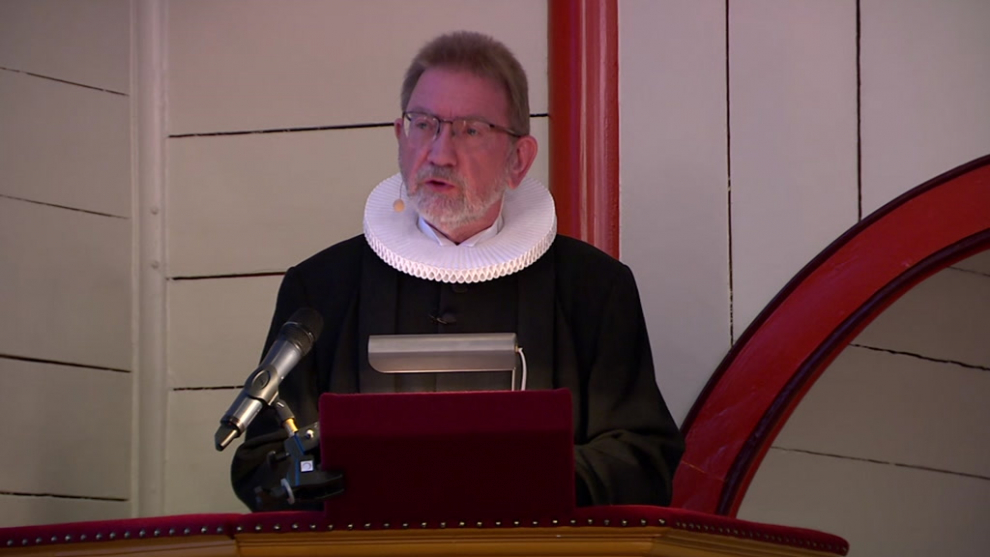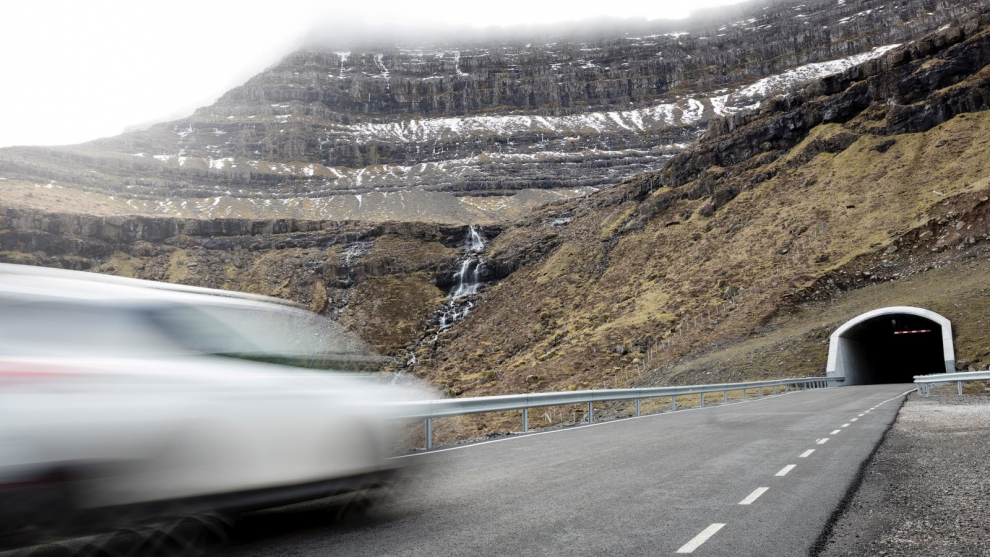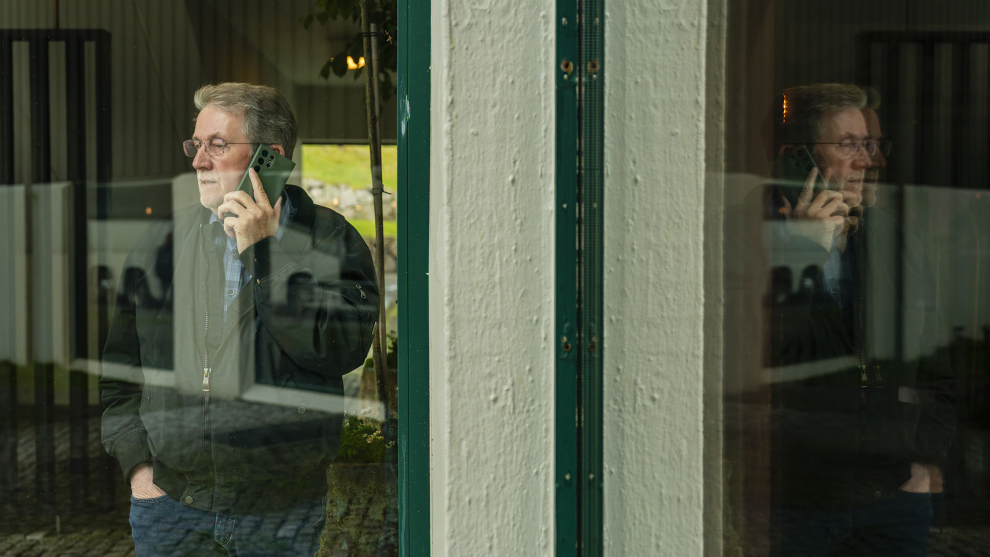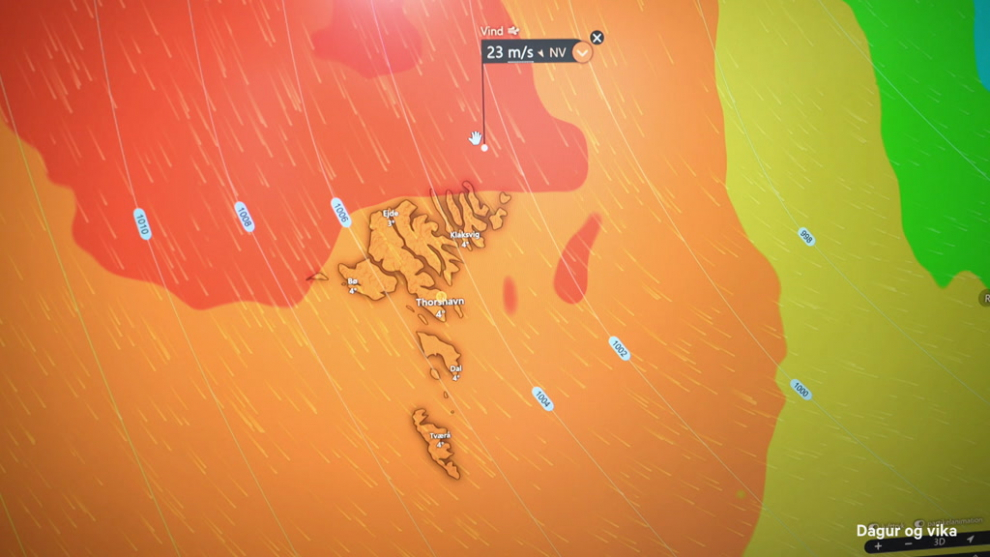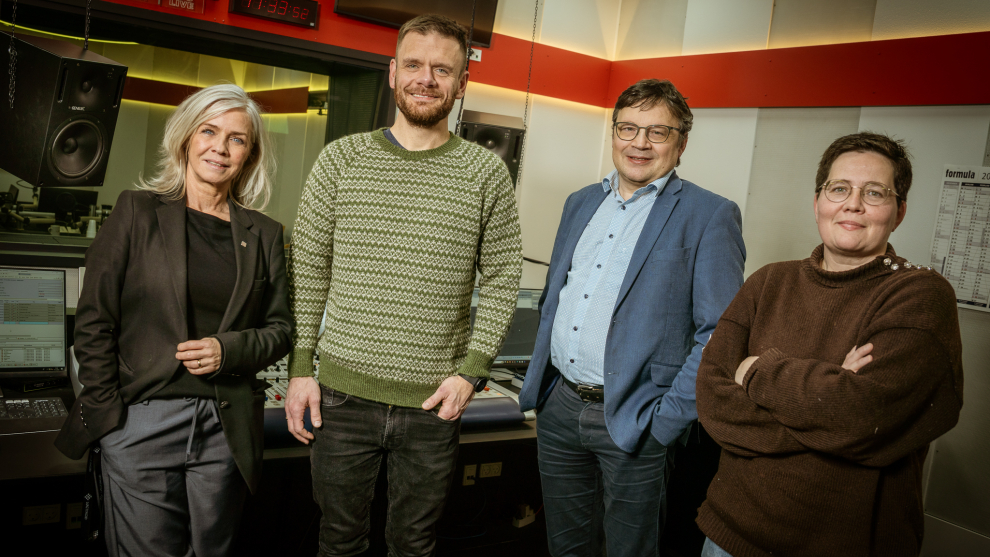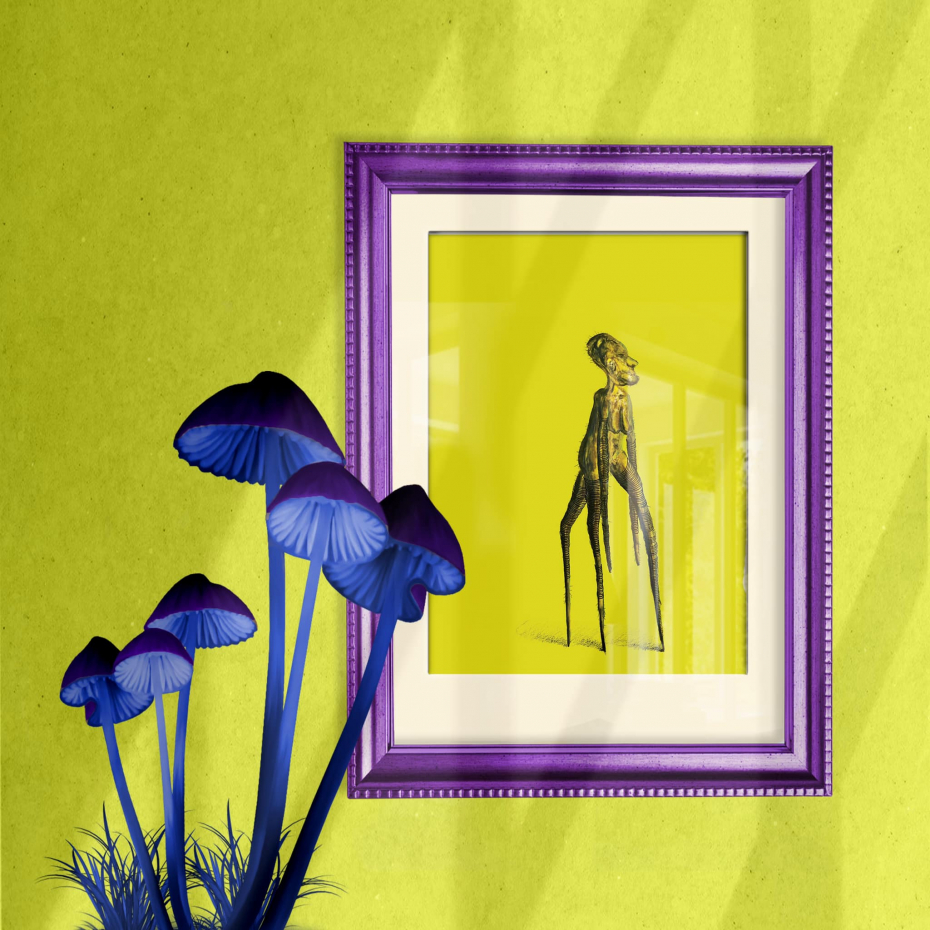
- Tíðindi, mentan og ítróttur
Laila felt out of place due to her brown skin
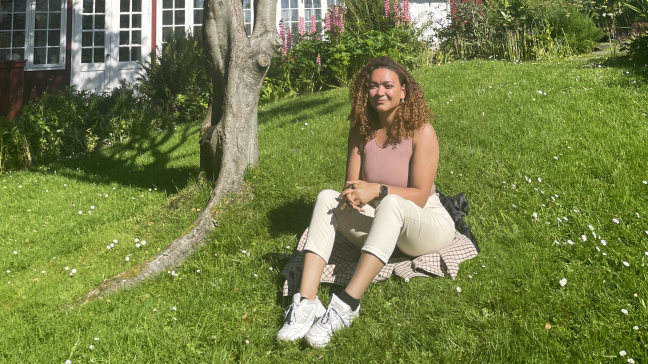
Laila Mote grew up in Vestmanna with a Faroese mother and a Kenyan father.
As a little girl, she often felt out of place because she looked different from the other children.
“For many years, I felt embarrassed and out of place because of my dark skin colour and my curly hair,” she explains.
“I used to spend two hours every morning before I went to school trying to straighten my hair because I wanted to look like the other kids.”
Artistic roots
These experiences have shaped Laila as a woman and as an artist.
As a little girl, she used to paint strange, surreal creatures. In her teenage years, however, she started to feel a need to switch to more conventional styles such as realist landscapes and portraits because she wanted to ‘fit in’.
“But this realist style didn’t really appeal to me; it didn’t give me any emotional gratification. So, as I matured and gained confidence in myself, I returned to my artistic roots.”
>> SEE ALSO An artistic celebration of life as an immigrant
Today, aged 28, her art mainly features little alien-like creatures, which she describes as follows in the ‘About’ section of her new online store.
“They're something I started drawing as a kid. As I got older I realized it was a way for me to express and cope with the complex emotions emerging from growing up as a minority in a small society like the Faroe Islands.
“I kinda' wandered around feeling like an alien creature kid waiting for my spaceship. My art was my spaceship and the creatures portrayed me.
“As I love experimenting with different kinds of medias, the creatures never look the same, they keep evolving and transforming.
“Because of their dynamic nature, they still to this day bring me some kind of comfort as they grow and evolve alongside me.”
Discomfort
She explains that people may feel some discomfort when they see these paintings, and that is intentional:
“I want to appeal to the emotions of people who are familiar with feeling alienated as a result of belonging to a minority group. My hope is that some of this discomfort may translate into some form of consolation,” she says.
“If people feel some discomfort when they see my creatures, that may represent about one percent of the discomfort that I and others who feel marginalised feel on a daily basis. I hope some people in minority groups can relate to this.”
Faroes have come a long way
Today, Laila lives in Copenhagen where she recently obtained a degree in architecture.
“I feel at home in the Faroes, but Copenhagen has an entirely different multicultural environment where I feel far less different than I do in the Faroes,” she explains.
“In the Faroes, I still frequently get some sort of comments, for instance people asking if they can touch my hair when I’m out on the town in Tórshavn on the weekend. Such things have never, not once, occurred in the five years I’ve lived in Copenhagen.”
Laila believes that the Faroes have come a long way in embracing cultural diversity. There is, however, still some way to go, she says, mentioning the Multicultural Week earlier this month as an excellent step in the right direction.
>> SEE ALSO Victims of racial abuse speak out
One of her first memories of feeling different is from when she was four or five years old and her dad took her to daycare in Vestmanna.
A girl in her daycare stared at her dad. After he had left, she told Laila: “You have a hooka-booka dad”.
At peace with it
“Being part of a minority will always have its challenges, but through my art I have reached a point where I now feel proud of my origins and how they have shaped me,” she says.
“It’s this feeling that I want to convey in my art, especially to people who struggle to embrace their brown skin, their curly hair or whatever else that makes them feel like a minority.”
Laila’s art can be viewed at the following links:
Online store: lailamote.bigcartel.com
Instagram: instagram.com/lailamote
Facebook: facebook.com/xlailamote
This article is a summary of a radio interview with Laila Mote, available here.
Translated by Prosa.fo.
More Faroese News in English.

